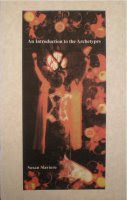There is a certain scent to these places: warm juice, overheated rooms, baby powder and urine. I often see a woman--her back perfectly straight, her gait surprisingly solid, just a hint of shuffle. She carries a baby doll. She diapers and changes it in the corners of the hallways, on the tables and bookshelves. Sometimes she asks for help but cannot explain what kind of help she might need. There aren't very many men here. My dad is one the few. He is still tall and handsome at 76, but mildly disheveled. He often looks just a little bit lost. He used to love to dress for things: he had tartan vests, J. Peterman shirts, white wing tip shoes. Now he wears only athletic pants and t-shirts. They don't always match.
"It's good to see you," he will say. Or sometimes (when I bring my husband) "look at all the people."
He is afraid of mirrors. He believes there lurks within them an imposter. A man who looks like him, who follows him everywhere and steals his shoes.
Once he took off his shoe and tried to beat his reflection with it, leaving herringbone track marks on the glass. He throws rabbit punches at his image, saying "I hate that guy."
My mother is hunched, her head parallel to the floor, circling the hallways with her walker. Muttering to herself that she's going to die. She's wearing a black blouse with tiny white pin-dots, black pants, clunky black maryjanes. It's hard to get used to, seeing her like this, her mind a flock of ravens, shattering into diaspora.
"They leave me pictures of amputated fingers," she tells me.
"Who?" I ask.
"The STAFF!"
"I'm pretty sure that's not happening." I tell her.
"Your father believes me." she says.
She has Parkinson's Disease, with psychosis and hallucinations.
I see myself, or perhaps my sister, 30 years from now. We all have the same auburn hair, fair complexions, delicate bones, although their eyes are blue, and mine are hazel. I ask my sister: will we shrink like those folk dolls, made from dried apples? Will we cling so desperately to who we were that we can't be trusted on our own, believing we can drive our cars while blind, manage the bills and the checkbook when we can't remember what they mean? Will our minds change in some fundamental way, lewy bodies, amyloid plaques, the broken synapses a foregone conclusion, written in our genome, a countdown clock, ticking away?
Sometimes I picture them when they were younger: Dad cooking a Thanksgiving turkey, Mom with her hair set in giant rollers to straighten it. They used to have cocktail parties, play bridge. They traveled to Europe, twice. My dad used to mow the lawn every week, until he began to believe he kept breaking the lawn mowers because he couldn't remember how they worked. We found four fully functioning mowers in the garage when we cleaned out their house.
We found a drawer full of fingernail clippings.
We found over a thousand twist ties--the green ones you get in the produce department at the supermarket--stashed all over the house.
We found cereal in the freezer.
We found bugs in the pantry and poison ivy all over the yard.
We found ourselves completely unprepared for this.
from ABATTOIR
2 days ago








2 comments:
By chance I am reading Roz Chast's memoir on her parents....
Do you recommend it so far? It might be something I'd like to read.
Post a Comment